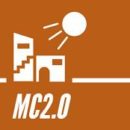13 November 2024

In October of each year, Dutch Design Week (DDW) takes place in Eindhoven. Source: SUPSI.
The 2024 edition of Dutch Design Week has just wrapped up in Eindhoven, one of Europe’s most prominent events dedicated to design and innovation. This year’s theme, “Real Unreal,” invited attendees to reconsider their perception of reality and envision new possibilities in a time when global challenges demand innovative and bold solutions. The event provided an opportunity to explore the potential of design as a tool to address current issues, spanning from environmental concerns to social inclusion. More than 2,600 designers, through installations and pavilions, transformed the Dutch city into an open-air museum. This setting encouraged visitors to reflect on the perception of reality, the use of materials and resources and created a dialogue between technological innovation and tradition.
Among the various exhibition spaces, one of the major highlights was the Klokgebouw, where the pavilion for the “Solar Design for Public Co-working Spaces” architecture competition was hosted, organised by SUPSI in collaboration with the MC2.0 project. The competition drew emerging designers and architects, challenged to imagine innovative solutions that could merge aesthetics with solar technology in a vision of sustainable and multifunctional architecture.
“Solar Design for Public Co-working Spaces”
For the contest “Solar Design for Public Co-working Spaces”, participants were asked to design a temporary co-working space in which a flexible and lightweight photovoltaic film is integrated into one or more technological systems such as shading systems, facades, roofs, street furnishing elements, etc. This space, accommodating approximately 10 workers, should encompass essential co-working amenities such as desks, chairs, electrical outlets, and a small outdoor workspace.
The Winning Projects: brilliant ideas for sustainable Solar Architecture
Our congratulations go to the three groups that stood out for their originality and innovation, each with a unique proposal to redefine the use of solar energy in urban settings:
First place: Studio Havenly, represented by Tianhui Zhang and Hayden Wu
Second place: Design slayers, which are Sreeya Patakota and Guna Sree Vempadapu.
Third place: ADBA Architects, which are Adam Kubica and Karolina Dubjelova.
A final event at the Plug-In Pavilion: meet the Jury and the Winners
The “Solar Design for Public Co-working Spaces” pavilion attracted numerous visitors, captivated by the opportunity to explore the innovative context of thin-film photovoltaics. The final day was dedicated also to a special event at the Plug-In Pavilion, where the public had the chance to interact with jury members, including Swiss architect Stefano DeAngelis (deltaZERO) and Dutch architect Harold van de Ven (Architect met Energie), as well as with the competition winners. During the event, the speakers discussed the impact of solar technology on architecture and the importance of sustainability for future cities.
A roundtable discussion saw enthusiastic public participation, allowing attendees to engage directly with experts and designers on pressing issues. Tianhui Zhang presented the concept behind his winning project, illustrating his design choices and the value of integrating solar technology into public spaces. The event concluded with a networking aperitif, fostering further idea exchange among designers, professionals and enthusiasts.
A successful edition in an ideal context for sustainable design
Dutch Design Week 2024 has once again proven itself as a leading venue for exploring and promoting sustainable design, providing young talents with the opportunity to showcase innovative solutions that can make a real impact on our cities. Set in an ideal context for discussing and sharing ideas on sustainability and technology, the event highlighted the interaction between solar energy and architecture, demonstrating how design can transform the way we experience urban spaces. We are confident that this edition marks only the beginning of a promising journey and we hope that future events will continue to spread knowledge and inspire the public with new visions.


